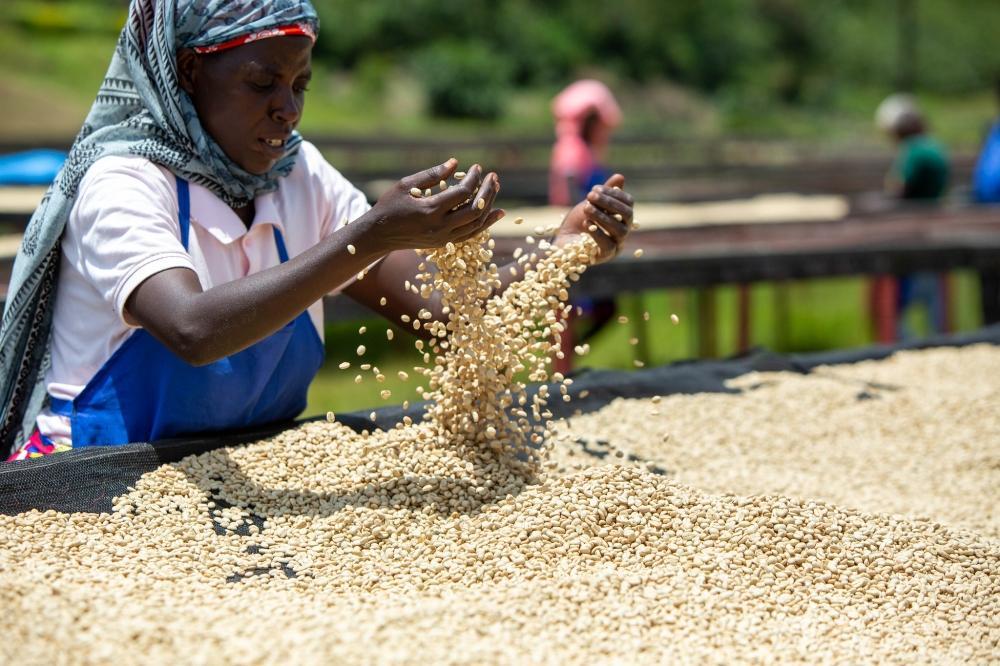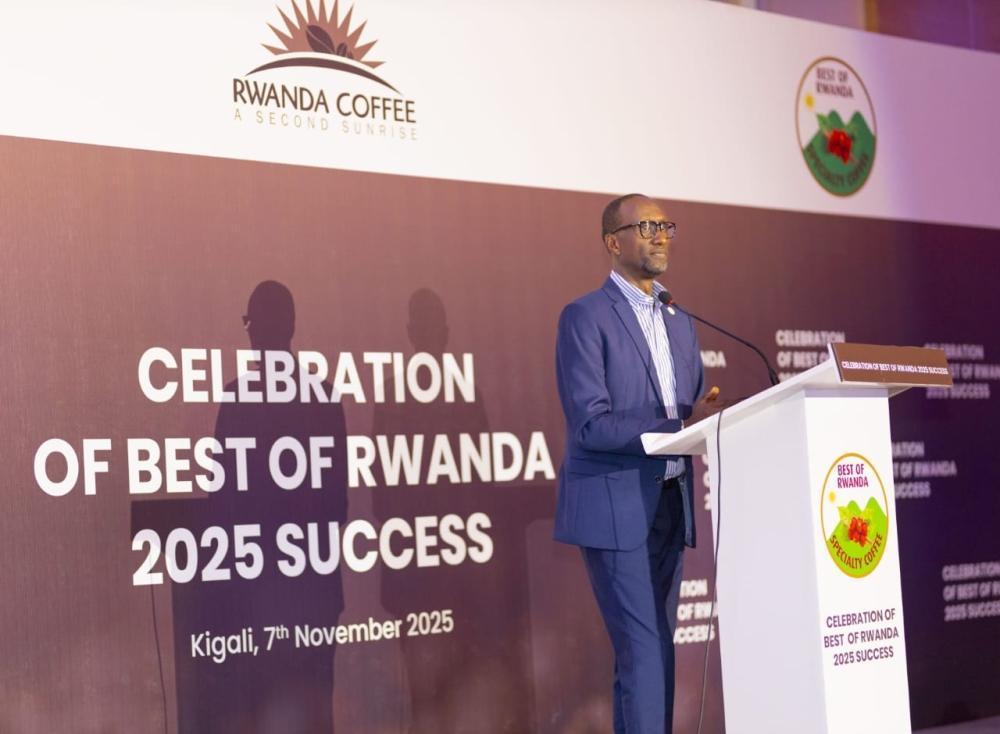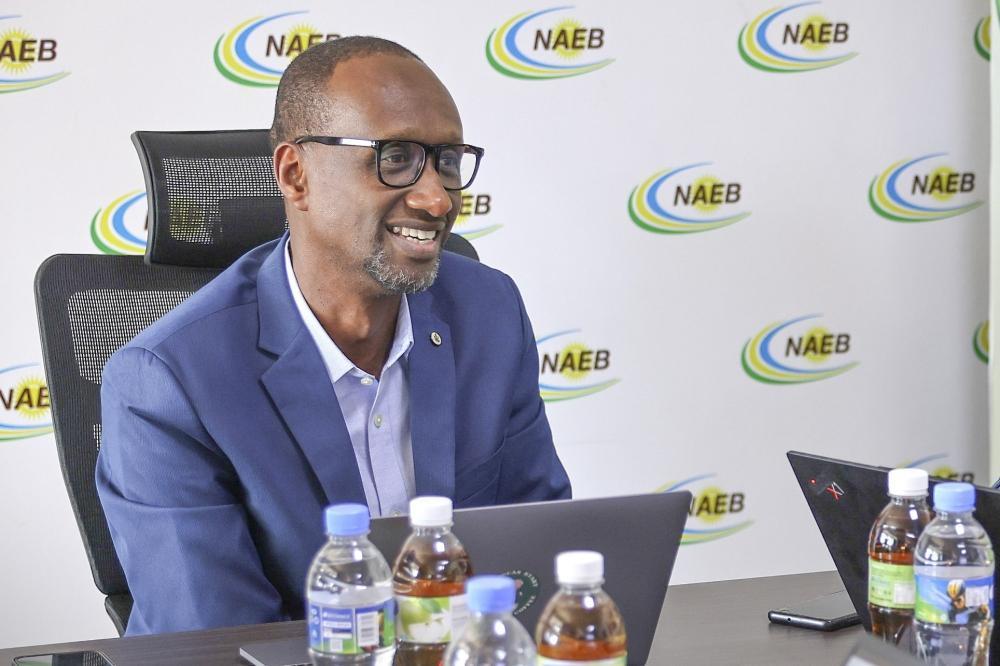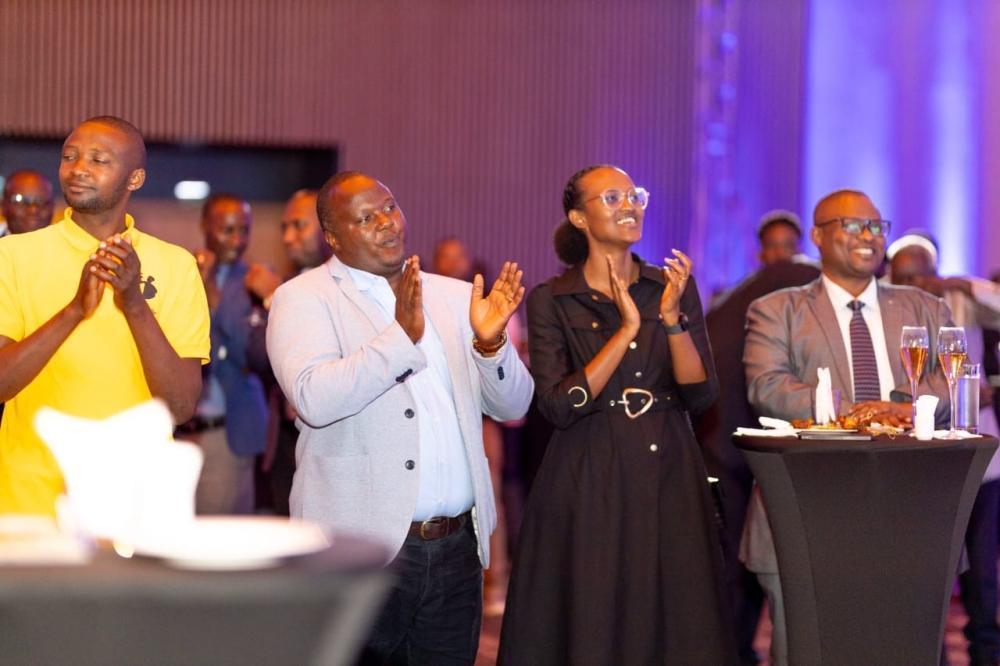Africa-Press – Rwanda. Authorities are closely monitoring coffee plantation expansion to ensure seedlings are not planted on deforested land, according to Claude Bizimana, Chief Executive Officer of the National Agricultural Export Development Board (NAEB).
The move aligns with new European Union (EU) deforestation regulations governing agricultural exports such as coffee, cocoa, and palm oil. The rules require exporters to prove that products entering the EU market are deforestation-free and traceable to their origin.
“The EU regulations demand that our coffee is not produced on deforested land,” Bizimana said. “We’ve developed a reliable traceability framework and continue to work with farmers to make sure expansion occurs only where forests have not been cleared.”
The EU Deforestation Regulation (EUDR), initially set to take effect in December 2024 but postponed to December 2025, prohibits products from land cleared after December 31, 2020. Exporters must also file a due diligence statement confirming compliance.
Europe remains a key market for the country’s coffee exports, with Switzerland leading the way—importing more than 3,700 tonnes valued at $18.4 million in 2023/24, or about 23 per cent of total export earnings. Other buyers include Sweden, Italy, Germany, and Finland.
Bizimana revealed the new measures at a recent press conference held during NAEB’s celebration of the Best of Rwanda Specialty Coffee 2025, where Rwandan coffee fetched a record $88.18 per kilogramme in an online auction.
Claude Bizimana, Chief Executive Officer of the National Agricultural Export Development Board during a meeting on Friday, November 7. Courtesy
He said the government has engaged the EU Delegation, international NGOs, and coffee buyers to ensure full compliance. As a result, the country has been classified as a low-risk origin under the EUDR.
To enhance transparency, NAEB has rolled out a digital “Smart System” that tracks coffee from farm to export. The tool collects data on production, inputs, and farm management practices. A nationwide coffee census is also underway to gather geospatial data and socioeconomic profiles of farmers.
“This will give us complete traceability,” Bizimana said, adding that ongoing discussions in Brussels could extend the compliance deadline by another year.
He noted that the country’s low-risk classification reflects a long history of smallholder coffee production and detailed data showing that recent expansions are environmentally compliant.
Farmers and exporters are already adapting. In Nyamasheke District, coffee farmer Lambert Muhire said he verifies land records before expanding his plantation. “If we don’t comply, our produce could be rejected,” he said, adding that he plans to grow 5,000 trees on non-deforested land.
Wellars Karangwa, Manager of Muhondo Coffee, said compliance has been costly but necessary. “Mapping our 1,800 farmers with GPS coordinates cost us about Rwf2 million,” he said.
In the 2024/25 fiscal year, coffee exports generated over $116 million, a 48 per cent increase from $78.7 million the previous year, slightly surpassing the national target under the five-year agricultural transformation plan.
Production rose by 25 per cent to 21,000 tonnes, while the average export price increased 18 per cent to $5.66 per kilogramme. Key drivers include replanting old trees, adopting high-yield varieties, and promoting private investment.
NAEB highlighted the Best of Rwanda competition as a major boost for specialty coffee visibility. In October, a batch from K-Organics Ltd in Huye District sold for $88.18 per kilogramme, nearly 14 times the average export price.
Under the ongoing agricultural strategy, the coffee sector aims to grow export revenues from $78.7 million in 2023/24 to $115.5 million by 2029—underscoring both the sector’s resilience and the urgency to stay compliant with evolving global standards.
For More News And Analysis About Rwanda Follow Africa-Press










